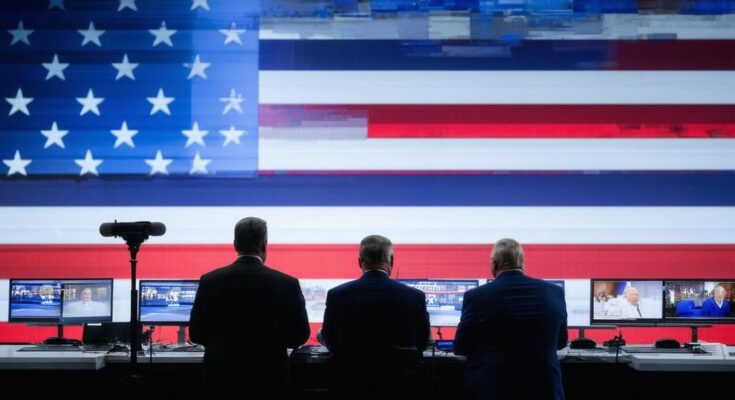Israel’s leadership is closely observing the imminent U.S. elections, recognizing their potential to shape strategies against ongoing conflicts with Hamas, Hizbullah, and Iran. The recent rocket fire from Hizbullah during U.S. Secretary of State Antony Blinken’s visit exemplifies the complexities involved in Israel’s security dynamics, further heightened by the upcoming political changes in America which may influence Israel’s military decisions and alliances.
Leaders in Israel are demonstrating keen interest in the outcome of the upcoming American elections, recognizing the critical influence this political event may exert on their nation’s strategies amidst ongoing conflicts. As reported, shortly before departing from Tel Aviv on October 23rd, U.S. Secretary of State Antony Blinken sought refuge in a bomb shelter during his stay, underscoring the precarious security situation in the region. His visit marked his 11th trip to Israel within a year, yet it was overshadowed by rocket fire from Hizbullah, which, despite causing no casualties, served as a stark reminder of the challenges Iran-backed militias pose to Israel. Israeli officials understand that the electoral results in the United States could potentially alter their alliances and defense tactics concerning their three main adversaries: Hamas, Hizbullah, and Iran. With escalating tensions in Lebanon and the Gaza Strip, and the unpredictability surrounding the Iranian nuclear ambition, the outcome of the U.S. election could significantly recalibrate the regional power dynamics. The current situation, characterized by conflict and anticipatory strategizing, paints a complex picture of how American foreign policy under new leadership may affect Israel’s own military engagements and diplomatic efforts in the Middle East. Furthermore, the possibility of Israeli aerial strikes against Iranian targets remains a point of contention, especially if the American election yields results perceived as favorable by Israel’s leadership.
Israel’s security landscape has been under strain due to multiple confrontations with hostile entities, notably Hizbullah and Hamas, both regarded as significant threats to the nation. These tensions are compounded by Iran’s strategic ambitions in the region, particularly its support for proxy groups and ongoing nuclear development. As American politics evolve, the Israeli leadership closely monitors how shifts in U.S. foreign policy catalyze or alleviate immediate security challenges.
In conclusion, the approaching American elections are viewed with great significance by Israel’s leaders, who anticipate that the result could reshape their approach towards existing conflicts. With regional threats persistently looming, particularly from Hizbullah and Iran, the political climate in the United States may directly impact Israel’s military calculus and diplomatic posture moving forward.
Original Source: www.economist.com




